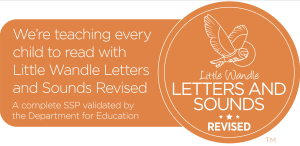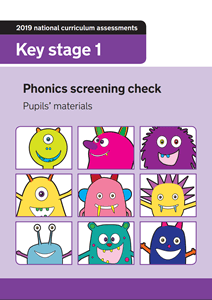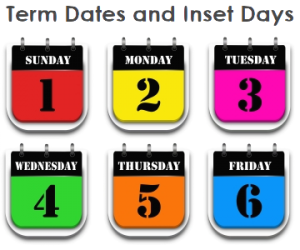Last updated: September 2024
· SENDCO · ADMISSIONS · CONTACTS · 01332 346230
Little Wandle

Reading is so important to a child. Once a child can read, this will open many doors to their learning. Through reading, children learn about people, places and events outside their own experience. They are exposed to ways of life, ideas and beliefs about the world which may be different from those which surround them and furthermore, inspire their imagination. Not only that, but reading expands a child’s vocabulary, enhancing their writing and speech. Through teaching Little Wandle daily, we hope to give every child at Firs this life changing, indispensable skill.
What is Phonics?
Phonics is a way of teaching children how to read and write. It helps children hear, identify and use different sounds that make up words and to distinguish one word from another in the English language. At Firs Primary we use the phonics scheme, Little Wandle Letters and Sounds – Revised
We believe that all our children can become fluent readers and writers. This is why we teach reading daily through Little Wandle Letters and Sounds Revised, which is a systematic and synthetic phonics programme. We start teaching phonics in week 2 of Reception and follow the Little Wandle Letters and Sounds revised programme, which ensures children build on their growing knowledge of the alphabetic code, mastering phonics to read and spell as they move through school. As a result, our children are able to tackle unfamiliar words as they read.
We also model the application of the alphabetic code through phonics in shared reading and writing, both inside and outside of the phonics lesson and across the curriculum. We have a strong focus on language development for our children because we know that speaking and listening are crucial skills for reading and writing in all subjects.
We provide a balance of child-led and adult-led experiences for all children that meet the curriculum expectations for ‘Communication and language’ and ‘Literacy’. These include:
- sharing high-quality stories and poems
- learning a range of nursery rhymes and action rhymes
- activities that develop focused listening and attention, including oral blending
- attention to high-quality language.
We ensure Nursery children are well prepared to begin learning grapheme-phoneme correspondences (GPCs) and blending in Reception.
Little Wandle Foundations is aligned to the non-statutory guidance on Development Matters and Birth to 5 Matters as well as the Early Years Foundation Stage (EYFS) statutory framework. We use it as part of our wider provision for Communication and Language, and Literacy. It supports children to:
- develop their phonological awareness, including rhyme, alliteration, syllables, initial and voice sounds, and oral blending
- love stories and rhymes, and learn by heart a bank of familiar favourites
- increase their vocabulary and confidence to talk
- improve their listening and ability to take part in back-and-forth conversations.
We teach phonics for 30 minutes a day. In Reception, we build from 10-minute lessons, with additional daily oral blending games, to the full-length lesson as quickly as possible. Each Friday, we review the week’s teaching to help children become fluent readers. Children make a strong start in Reception: teaching begins in the Autumn term.
We follow the Little Wandle programme expectations:
- Children in Reception are taught to read and spell words using Phase 2 and 3 GPCs, and words with adjacent consonants (Phase 4) with fluency and accuracy.
- Children in Year 1 review Phase 3 and 4 and are taught to read and spell words using Phase 5 GPCs with fluency and accuracy.
Daily Keep up lessons to ensure every child learns to read
Any child who needs additional practice has daily keep-up support, taught by a fully trained adult. Keep-up lessons match the structure of class teaching, and use the same procedures, resources and mantras, but in smaller steps with more repetition, so that every child secures their learning.
Year 2
Year 2 begins by using assessment to ensure that children have completed the Little Wandle Year 1 progression. Any gaps in teaching are addressed through daily phonics lessons until the programme is completed. Corresponding summative assessments are carried out to ensure this content is secure.
Children in Year 3 to Year 6: Rapid Catch-up
We timetable daily phonics lessons for any child in Year 3 and above who is not at age-related expectations for reading or has not passed the Phonics Screening Check. These children urgently need to catch up, so the gap between themselves and their peers does not widen.
These short, sharp lessons last 15 to 20 minutes daily and have been designed to ensure children quickly catch up to age-related expectations in reading.
We assess children who are new to our school, new to the country or new to English using the Rapid Catch-up assessments to quickly identify their needs.
We use the Rapid Catch-up assessments to identify the gaps in children’s phonic knowledge and teach these using the Rapid Catch-up resources – at pace.
We assess children every four weeks using the Rapid Catch-up summative assessments to assess progress and inform teaching.
Reading in school
We value reading as a crucial life skill. By the time children leave us, they read confidently for meaning and regularly enjoy reading for pleasure. Our readers are equipped with the tools to tackle unfamiliar vocabulary
We teach children to read through reading practice sessions three times a week. These:
- are taught by a fully trained adult in small groups of approximately six children
- use books matched to the children’s secure phonic knowledge using the Little Wandle Letters and Sounds Revised assessments and book matching guidance.
- Each reading practice session has a clear focus, so that the demands of the session do not overload the children’s working memory. The reading practice sessions have been designed to focus on three key reading skills: decoding, prosody (teaching children to read with understanding and expression) and comprehension.
Reading at home
The decodable reading practice eBook is assigned to the child so they can read it at home to ensure success is shared with the family.
More information for parents can also be found here
https://www.littlewandlelettersandsounds.org.uk/resources/for-parents/
Sound pronunciation videos can be watched by following this link
https://www.littlewandlelettersandsounds.org.uk/resources/for-parents/
Phonics Screening Check
At the end of Year 1 children are assessed using the National Phonics Screening Check. This assessment gathers information on the children’s ability to blend and segment decodable words to read.


The children sit with their class teacher, one to one in a relaxed environment, and read 40 words. Some words are real words and some are nonsense words .
If a child in Year 1 does not meet the required pass standard, they will re take the test in Year 2. Through-out Year 2 the children will be supported and will have interventions to help them to develop in phonics. They will also continue on the RWI program. The children will then retake the test in June.
Moving to Year 3, if any children still need support with their reading, writing and confidence in this area this will be put in place for them. They will also continue on the RWI program, having phonics lessons specific to their Assessment and needs.
Contact Us
Firs Primary School
Raven Street
Derby
DE22 3WA
Telephone: 01332 346230
Fax: 01332 200782
admin@firsprimary.derby.sch.uk
Latest News and Events
- School Defibrillator April 25, 2022
- Jungle Book November 26, 2020
- A Parent’s Guide to the BLM Movement July 30, 2020
Using the site

© Copyright 2025 Firs Primary School
Part of the Derby Diocesan Academy Trust (DDAT) family of schools
Registered Address: Unit 3 Top Floor Endcliffe Mount, Deepdale Business Park, Ashford Road, Bakewell, Derbyshire. DE45 1GT
Tel: 0333 3554353, Email: info@ddat.org.uk



